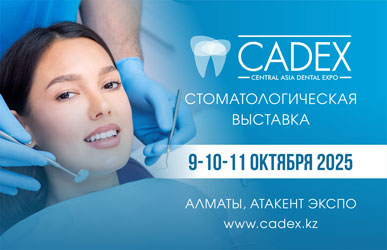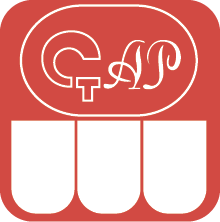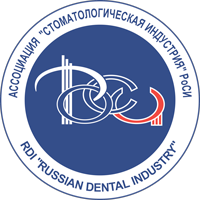DOI:
10.37988/1811-153X_2019_1_12The relationship between genotypes of kallikrein-4 gene and dental caries implementation and course
Downloads
Abstract
On the comprehensive assessment of polymorphism of gene to regulate the formation of protein matrix - kallikrein-4 G2664153A and G2142А basis, the forecast of dental caries development in a case of carrying the allele A determining dysregulation of the tooth enamel mineralization process has been substantiated. This approach makes drawing up an individual plan of preventing dental caries be possible depending on the carrier of the genotype A/A of the kallikrein-4 gene at the mutation points G2664153A and G2142A. The criteria for forming dispensary observation groups are the allele A carrier of KLK4 gene at the mutation points G2664153A and G2142A, which indicates a high risk of tooth decay.Key words:
kallikrein-4 gene, mutations, risk of tooth decay development, preventionFor Citation
[1]
Lukashevich I.K., Pomorgailo E.G., Gorbunova I.L., Abramyan I.R. The relationship between genotypes of kallikrein-4 gene and dental caries implementation and course. Clinical Dentistry (Russia). 2019; 1 (89): 12—15. DOI: 10.37988/1811-153X_2019_1_12
References
- Дроздов В.А., Горбунова И.Л., Недосеко В.Б. Текстурные характеристики эмали зуба и ее резистентность к кариесу. - Стоматология. - 2002; 4: 4-9.
- About I., Mitsiadis T.A. Molecular aspects of tooth pathogenesis and repair: in vivo and in vitro models. - Adv Dent Res. - 2001; 15: 59-62.
- Hu C.C., Hart T.C., Dupont B.R., Chen J.J., Sun X., Qian Q., Zhang C.H., Jiang H., Mattern V.L., Wright J.T., Simmer J.P. Cloning human enamelin cDNA, chromosomal localization, and analysis of expression during tooth development. - J Dent Res. - 2000; 79 (4): 912-9.
- Doméjean-Orliaguet S., Gansky S.A., Featherstone J.D. Caries risk assessment in an educational environment. - J Dent Educ. - 2006; 70 (12): 1346-54.
- Wright J.T., Daly B., Simmons D., Hong S., Hart S.P., Hart T.C., Atsawasuwan P., Yamauchi M. Human enamel phenotype associated with amelogenesis imperfecta and a kallikrein-4 (g.2142G>A) proteinase mutation. - Eur J Oral Sci. - 2006; 114, suppl. 1: 13-7.
- Simmer J.P., Hu Y., Lertlam R., Yamakoshi Y., Hu J.C. Hypomaturation enamel defects in Klk4 knockout/LacZ knockin mice. - J Biol Chem. - 2009; 284 (28): 19110-21.
- Jacobsson B., Wendt L.K., Johansson I. Dental caries and caries associated factors in Swedish 15-year-olds in relation to immigrant background. - Swed Dent J. - 2005; 29 (2): 71-9.
- Lau E.C., Slavkin H.C., Snead M.L. Analysis of human enamel genes: insights into genetic disorders of enamel. - Cleft Palate J. - 1990; 27 (2): 121-30. PMID: https://pubmed.ncbi.nlm.nih.gov/2187631/
- Forsman K., Lind L., Bäckman B., Westermark E., Holmgren G. Localization of a gene for autosomal dominant amelogenesis imperfecta (ADAI) to chromosome 4q. - Hum Mol Genet. - 1994; 3 (9): 1621-5.
- Hart P.S., Hart T.C., Michalec M.D., Ryu O.H., Simmons D., Hong S., Wright J.T. Mutation in kallikrein 4 causes autosomal recessive hypomaturation amelogenesis imperfecta. - J Med Genet. - 2004; 41 (7): 545-9.
Downloads
Published on
March 1, 2019












